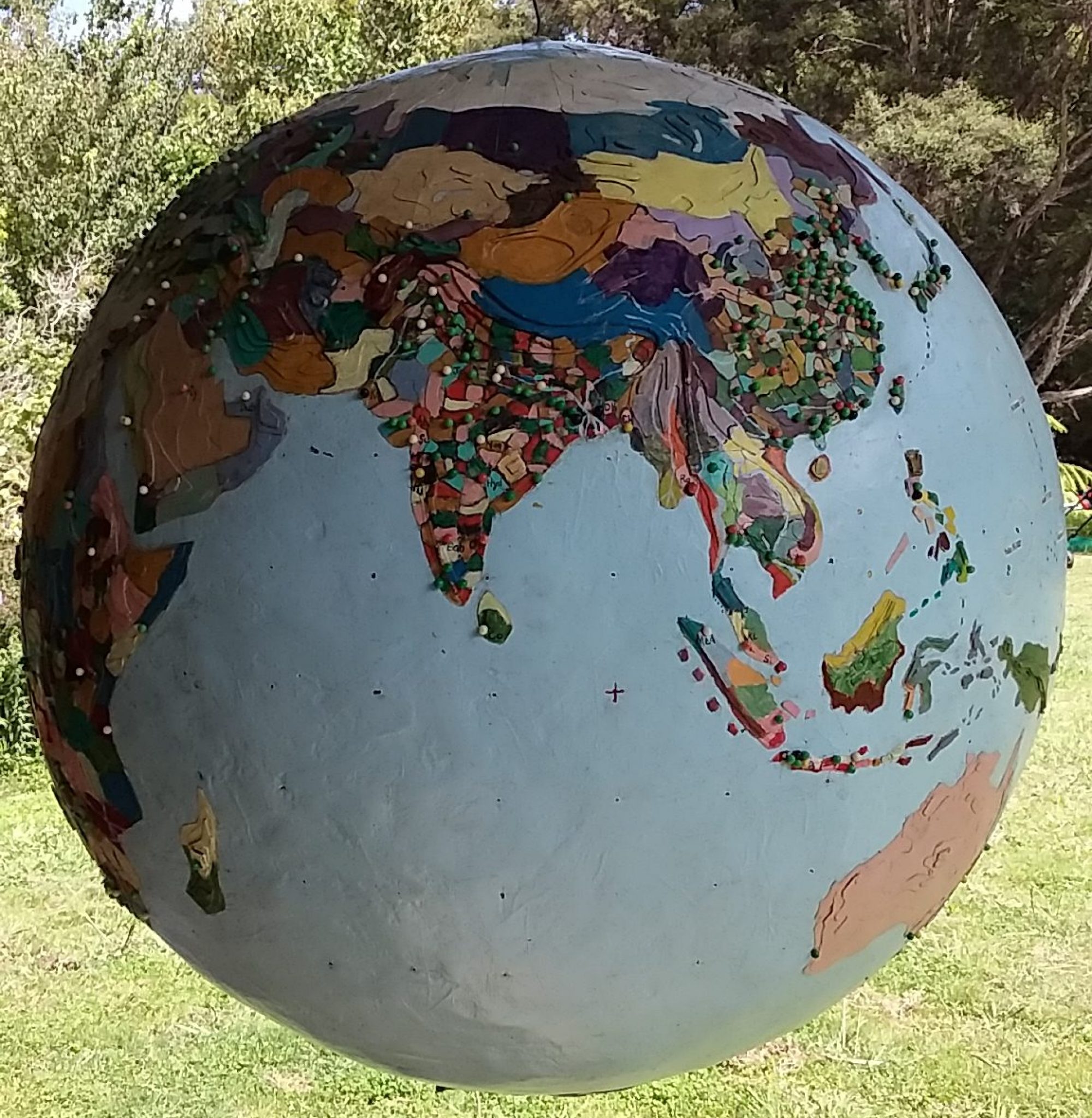In the remote north of the Democratic Republic of the Congo (DRC), near the border with the Central African Republic (CAR), is the the old Belgian Congo province of Equateur (population of 7.5 million) and in May 2018 an outbreak of the ebola virus was reported there, near the city of Mbandaka (population 1.2 million). This is the DRC’s ninth outbreak since 1976 when ebola had first been identified near the Ebola River, a tributary further up the Congo River from Mbandaka.
When the explorer Henry Stanley passed through in the nineteenth century he had a rock placed where the equator crossed the Congo, just south of Mbandaka. Known as the Stanley Stone it still stands there today. Seven kilometres east of Mbandaka are the Botanical Gardens of Eala, established by the Belgians in 1900. It once covered 370 hectares and contained 5000 Central African species, but now, neglected and unfenced, it provides charcoal for Mbandaka.
The streets of Mbandaka are dirt, most of the city has no electricity or running water and roving groups of Kulana (bandits) commit armed robbery, rape and murder. Pygmies and other tribes of “eco-refugees” have settled on the outskirts as their forest habitats disappear.
During the Zaire-Congo war (1998-2003), when over five million Congolese died, Equateur strongman Jean-Pierre Bemba assembled an army of deserters and ethnic militias and took control of the region. Using jungle airstrips Bemba traded blood diamonds for arms with dealers from Russia, Israel and New York.
Bemba’s Mouvement de Libération du Congo (MLC) became a political party and in 2008 he challenged the DRC dictator Joseph Kabila for the presidency, coming second in an election that was probably rigged. In 2008 Bemba was arrested in Brussels and sentenced at the International Criminal Court (ICC) in the Hague to 18 years for crimes against humanity – the longest sentence so far passed by the ICC and the first for sexual violence. Many Congolese in Equateur still consider Bemba their leader.
Mbandaka is the centre of the Tumba-Ngiri-Maindombe wetland (Lake Tumba is where the latest ebola outbreak started). An area of forest and permanent and seasonal lakes twice the size Belgium the wetland has great environmental and economic value but a rapidly growing population combined with a corrupt government may be contributing to its irreversible destruction. In 2009-2010 a dispute over fish ponds lead to 200,000 refugees fleeing across the Oubangi River into the Republic of Congo.
After a drought in 2016 cholera broke out in Equateur but the state has never been able to meet the region’s health needs, which includes TB, malaria and HIV. There are desperately inadequate transport links, no medicines, no salaries for qualified caregivers and medical ethics mediated by animist priests. Cholera, like the weather, is considered a cyclical event.
Since 1976 the ebola virus has emerged periodically, primarily in African countries, but cases have been reported in the US, UK, Russia, Italy and Spain. Depending on the strain the fatality rate ranges between 50 and 90 percent. In the largest outbreak, in West Africa in 2014-16, around 5000 people died in Liberia, 4000 in Sierra Leone and 3000 in Guinea.
According to the World Health Organisation (WHO) it is thought that fruit bats are natural ebola hosts and that people can pick up the virus from infected “bushmeat”. Shaking hands and bushmeat have suddenly become unpopular in Mbandaka.
Just before the latest outbreak Donald Trump scrapped Barack Obama’s $US 250 million ebola containment fund on the grounds that Africa was not part of the US geopolitical interests – this was followed by the resignation of his global health security advisor. He has since contributed $US seven million towards fighting the latest outbreak.
A vaccine, developed by the American pharmaceutical company Merck, and trialled in West Africa in 2016, is being deployed by the WHO which is now fighting its first urban ebola outbreak.
So far about 60 ebola cases have been reported, half of whom have died. Last week 49 people drowned when a ferry heading for Mbandaka overturned.
Past millisphere columns can be accessed at millisphere.blogtown.co.nz
